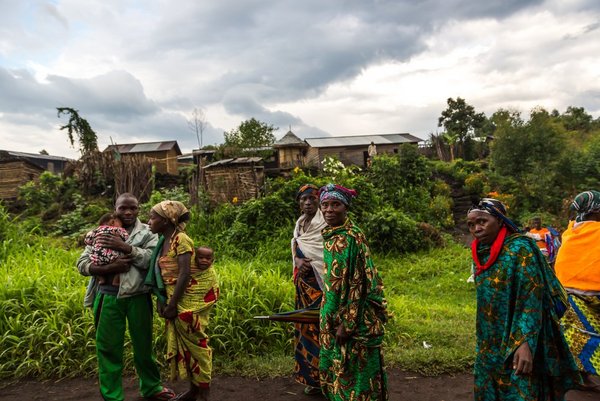 Read this article in French
Read this article in French- Share this article
- Subscribe to our newsletter
Germany boosts forest protection and women’s empowerment in the DRC
At government negotiations in Kinshasa end of February the Germen Federal Development Minister Svenja Schulze announced to allocate 90 million euros to these two priorities, which are part of the new Africa Strategy of the German Federal Ministry for Economic Cooperation and Development (BMZ).
“The Congo Basin Forest is an enormous carbon sink that the world cannot do without”, said Development Minister Svenja Schulze in Kinshasa. “The people that live and depend on it must also benefit from forest protection. Done right, forest conservation and poverty reduction are two sides of the same coin. That’s why we only support projects that connect the dots between conservation, sustainable use and livelihoods for local people – and implement them together.”
The DRC has begun to make inroads in forest protection
The forest generates rainfall and feeds the Nile with water. It is essential to the lives of the majority of the country’s nearly 96 million inhabitants. But in many areas, the population is plummeting due to deforestation. The main causes are unsustainable uses of firewood and charcoal, uncontrolled mining, illegal logging and inefficient agricultural practices. Faced with poverty, displacement and violent conflicts, many people are struggling to survive.
According to a press release of the BMZ Germany is supporting the DRC in its efforts to better protect the forest and its biodiversity and to preserve it as a source of livelihood for future generations. The BMZ, for example, is providing funding for reforestation and more efficient structures in the management of national parks. The parks help conserve the forest and create new jobs. Several hundred game wardens have received basic and further training. In six protected areas, new bridges and roads have been built, creating jobs and facilitating the work of forest conservationists.
The lives of the indigenous population have also been improved through direct support, for example by paying school fees. Small farmers’ associations have also been founded in a number of villages with German support. And some communities can now independently maintain bridges and roads with the revenue from controlled logging.
Alongside the bilateral government negotiations, representatives of the Central African Forest Initiative CAFI (currently chaired by the BMZ) met with representatives of various Congolese ministries to exchange views on the successes of the partnership for greater forest and peatland protection. They also agreed on future steps.
Providing special support for women in the crisis-hit eastern DRC
The situation is particularly difficult for the population in eastern Congo, where there are instances of extreme conflict. Violent clashes between the numerous conflicting parties have ripped apart the social fabric in many places.
In these areas, German development cooperation focuses particularly on the advancement of women notes the BMZ in its press release. Women very often provide food in families, keep the generations together and maintain the social network in communities. They frequently also take part in income-generating activities.
Women often suffer the most from violence – and they are also frequently exposed to sexualised violence – but they form a strong backbone for society as a whole. In conflict-affected communities, the BMZ supports pregnant and breastfeeding women by providing treatment and prevention services to prevent malnutrition and undernourishment, clinics for survivors of sexualised and gender-based violence, as well as training and awareness campaigns that help boost women’s voices in the private and public spheres. Germany is also supporting development in eastern Congo by setting up small businesses that create jobs and infrastructure, for example for green electricity and the supply of clean drinking water.
(BMZ/wi)
More information:
German development cooperation in the DRC (German)





Add a comment
Be the First to Comment